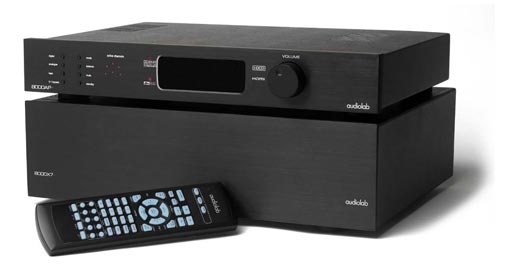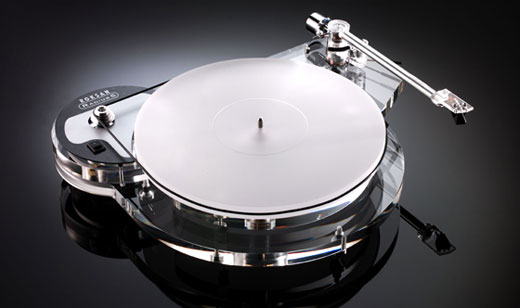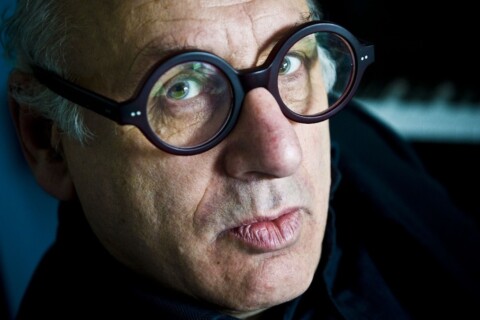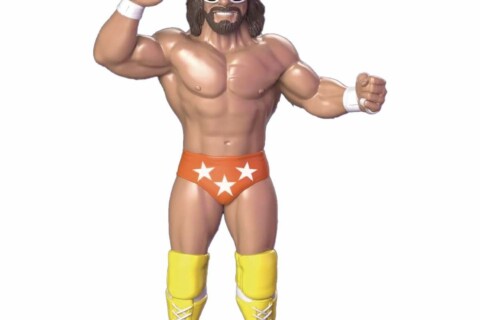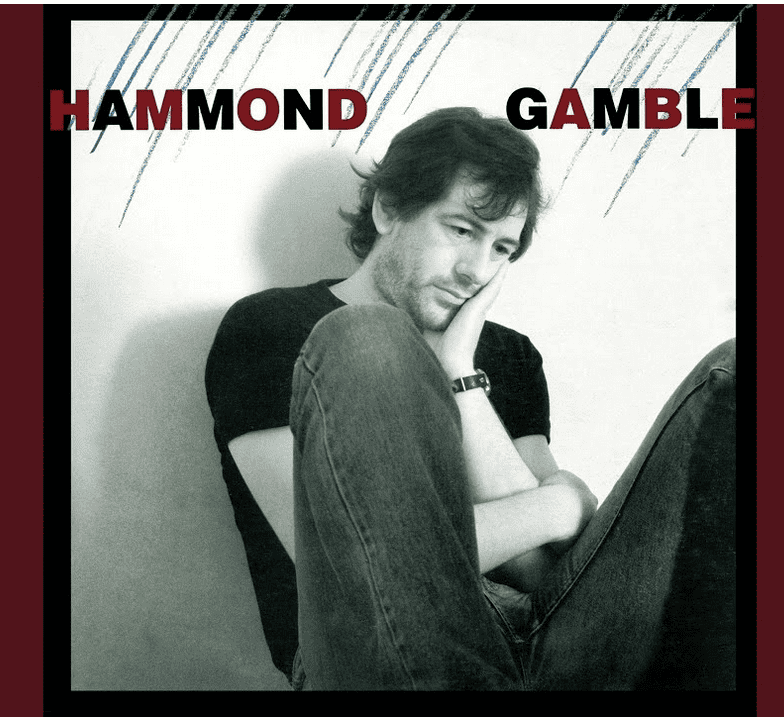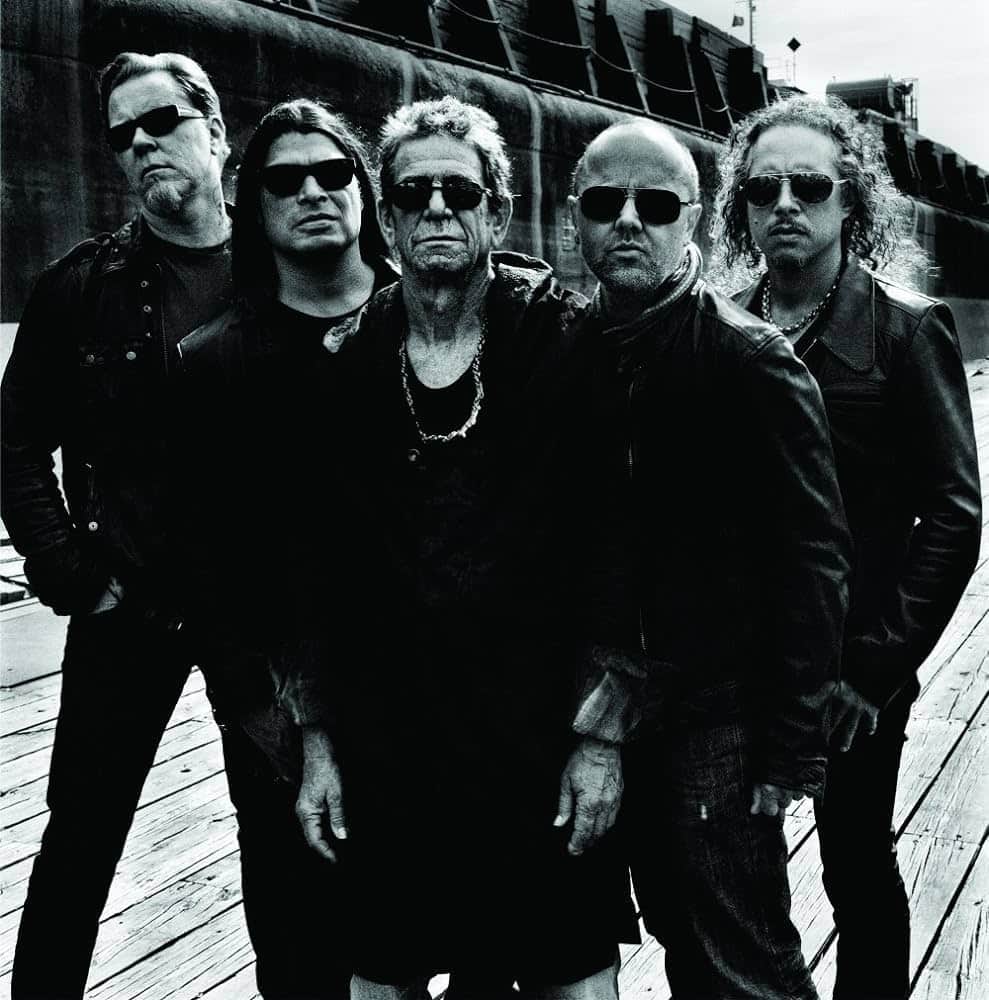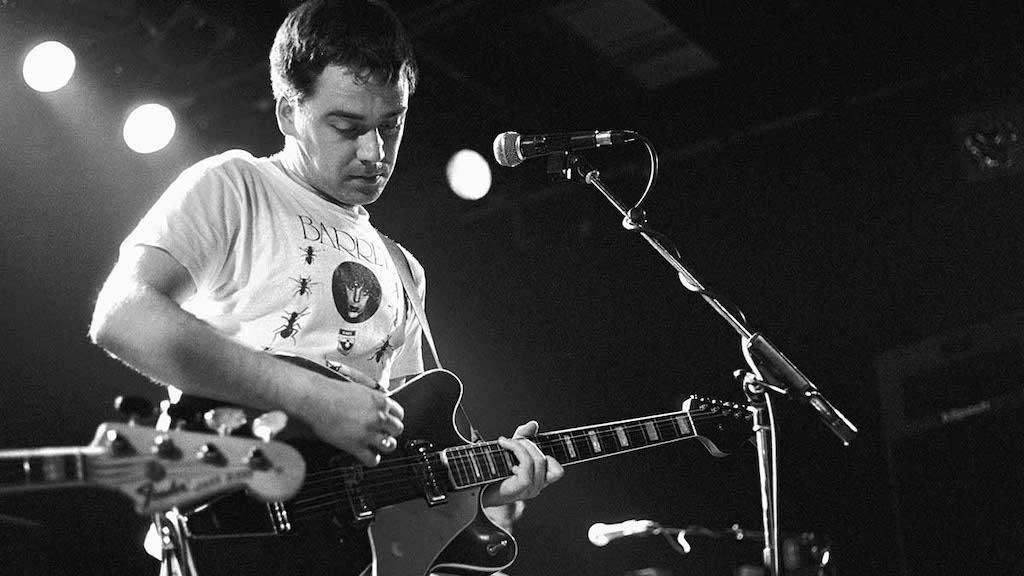 She’s the super-cute Japanese girl who jumps up and down and plays flutey bits on Orcon’s brilliant ad featuring Iggy Pop’s ‘The Passenger’. But her CV has a bit more to it than that. Gary Steel is swept up and tossed around by her relentless positivity.
She’s the super-cute Japanese girl who jumps up and down and plays flutey bits on Orcon’s brilliant ad featuring Iggy Pop’s ‘The Passenger’. But her CV has a bit more to it than that. Gary Steel is swept up and tossed around by her relentless positivity.
Miho – I had a really interesting weekend, because on Saturday I did the Mission Day jazz festival, and it was amazing. But the security people were really strange, like everybody else was getting through to places and I was like ‘can I go through?’ and they were like ‘no,’ and I was like ‘why?’ and they’re like ‘they’re artists’ and I was like ‘yeah, but I’ve got a spot, I played’. And on Sunday I had a gig and I got electrocuted. It went ‘ga-boonk!’ I had never had it before. Apparently it’s really dangerous, I got told off really badly afterwards. They said ‘you should have stopped’ and I said ‘I didn’t know what it was’.
Witchdoctor – What gig was that?
Miho – Japanday. The PA company they had booked didn’t earth it properly. And then afterwards I got off the stage and my drummer, he said ‘I’ve got bad news’ and he was like ‘I’m leaving’. [laughs]. It’s been a bit of a strange week.
WD – What was the problem?
Miho – His girlfriend decided that she was going to be the next big star, so he wasn’t allowed to play with anyone else. [laughs] But I was like ‘can you wait two more weeks for her to be a star?’ No, he couldn’t wait.
WD – So you were going to take him to America [to play South By Southwest festival] and now he’s not going?
Miho – He’s not going. So we had to cancel the tickets, and there were no flights available, so I was talking to everyone I knew. It was amazing, I just put up on Facebook status, “oh I’ve lost my drummer” and everyone was so kind and so supportive, all my fans emailed everyone they knew, and they emailed everyone they knew. There was so much support and I felt so loved and people around the world were emailing me saying ‘are you okay?’ We nearly asked someone in Austin who is already there, but because I had to cancel my drummer’s flight, my booking agent was really really quick and he booked a new ticket straight away for me and it was like ‘I need the name’. And my guitarist John McNabb said this drummer would be brilliant, so he’s coming with us now.
WD – What’s his name?
M – James Percy, from the Tutts. So it’s all sorted, and I had an immigration interview this morning so that’s all sorted as well, apparently it’s going to come back in three days’ time. So all set to go, finally [laughs]. And the visas were supposed to get sorted about a month ago, and it was just so slow, we all go [makes exasperated breathing sound]. But that’s life. It makes it more interesting. [laughs]. Makes you appreciate it more I suppose. And I have a really good feeling, better than before the drummer changed. I have a much better feeling about the whole thing.
WD – SXSW… how do you get to play at something like that?
M – I applied online. I had heard about it so much, because when I was living in the UK everyone was trying to get their bands to go to South By Southwest, and everybody talked about how it was really cool. And I thought ‘ooh, one day’. And last year I had my band together for the first time, and application was about 15 September or something, and it was $50 to apply for it, and I thought ‘that’s a lot of money’, and I never ever thought I’d get in [chuckles]. And then in the middle of November I got an email out of nowhere saying I’d got an invitation to South By Southwest, and I was like ‘What? What? What?’ And the recording I sent, because we didn’t have a recording of the band yet, was just me at the piano, singing along to my songs. [laughs]. All by myself [laughs]. And then they liked it and booked us. We are playing straight after a metal band, in this place called The Headhunters. [laughs] It’s like business opportunity more than a ‘concert’ concert. Networking. My booking agent in America, before we signed with them, they were like ‘what do you want from South By Southwest?’ and I said I’m not interested in being signed to a label, because I don’t think people buy CDs much anymore. And I have seen so many artists and read about so many people who have signed with labels and, it just didn’t work out. And I thought ‘everyone’s just buying music off iTune now, I’ll just do that’. Because I know what I want from the convention, I think people have been more helpful. Everyone’s been SO helpful, I feel so much support, so lucky!
WD – You live in Auckland now, and you used to live in Christchurch?
Miho – In 1995 my dad was watching America’s Cup, and he fell in love with New Zealand. He was like ‘we have to be there, we have to be part of it.’ He just really fell in love! And he had this company that made softwares for civil engineering, for bridges, so he didn’t really have to be in Japan the whole time for work. His company researched which part of the building collapsed when the earthquake came, for the last 25 years or so. But he’s retired now, he’s playing golf and gardening all the time now. My parents really love it in Christchurch. So I went to Burnside Highschool and Canterbury University and…
WD – How old were you when you shifted over?
M – By the time we moved I was 15. And then I went to the UK. I was going to go for a couple of years but I ended up working for a few more years. And I went to Trinity College of Music. And that was nice, but I had a job in an orchestra half way through, and I left to play in Malta for awhile. I played for the National Orchestra Of Malta, but I didn’t like it. I thought that was all I wanted to do with my life was to become orchestral player. But as soon as I got the job it was like ‘oh, this is terrible’. My bottom was sore from sitting the whole time. I need to do something like jump around! And then music became a job, rather than something you do for fun. So I was like ‘oh, this is not good’, so I went back to London and said to the school, ‘can I please come back?’ so they let me finish the degree.
WD – How did you get to go to Trinity College of Music?
Miho – I auditioned about a year before I entered. I went to London and auditioned, and they said yes, and I did part time degree rather than fulltime, so I could work half the time. I taught little kids how to play music. I’ve been doing that for a long time. I still do that here. I love it.
WD – Do you teach kids how to play instruments generally?
M – I teach the flute, clarinet, saxophone, trumpet, piano, and I do lots of improvisation groups.
WD – Improvisation, with small children?
Miho – The earlier they start the more creative they are. Because I teach in primary schools, and I tell them ‘okay, D-major, go!’ and they’ll find the moods that sound alright.
WD – It’s not just a big noise?
M – No, some kids really struggle, but mostly they can all do it. Because if they didn’t have the preconcept of ‘you have to do this or that’ they just muck around, it’s like play. They just kind of go ‘okay’. And then some of the kids are really talented.
WD – You don’t teach recorder as well?
Miho – I played the recorder when I was at primary school as well, but I never really got into it. I mean if you had the choice of playing the recorder or saxophone, you’d want to play the saxophone, wouldn’t you?
WD – I guess it’s an easy starting instrument.
M – Yeah, the fingering is basically the same. Oh we have lots of fun.
WD – So how are you escaping from that to go on tour?
M – I always say right at the beginning when people come to learn from me that I’m not always here. That performance is a big part of my life. I think that some schools wouldn’t like it, because they want regular lessons, but most of the parents really love it. They all saw me on the Orcon ad, and go ‘my teacher’s on TV’, and that makes them feel good. And they’ll tell all their friends, ‘my teacher’s really famous’. I think it’s good for them to know that if they work really hard at something there’s a place they would get to. Not just music, but if they try really hard in study or sports or whatever, if they try they’ll get to a place where they can be seen on TV or go overseas. I think it’s really nice.
WD – A lot of kids these days just want to be famous, so it’s kind of a way to be famous by doing something cool, it’s not just famous for being famous.
Miho – Mmm. I don’t know. I don’t know I never really thought about it. [laughs] I live in a big bubble. I don’t have a TV. I don’t have too much information about other people. Oh celebrity and all that, my mum’s like really into the Tiger Woods thing at the moment. Tiger Woods had an affair! In mum’s world that’s a big thing but I was like ‘really?’ I don’t know.
WD – Some people seem to need to feed into someone else’s dramatic life.
Miho – I understand that they need to get out of their life. I think I have too much dramas in my life already. [laughs]. I think things happen to me more than me trying to make things happen, though. Like being electrocuted and stuff. I had to go to the emergency chemist, I was in quite pain.
WD – What do you take for electrocution?
Miho – Vitamin E. [laughs] Vitamin E tablets. And they gave me a treatment thing for burn. [shows paw-paw ointment]. It’s healed really quickly.
WD – Are you okay in the sun? [we’re sitting in a sunny spot at a café]
Miho – Yeah! This is nothing! I grew up in Kyushu Island south of Japan, we could swim six months of the year, it was so tropical. And palm trees everywhere, and there were like wild monkeys running around. I was little so the monkeys seemed quite big, and they jump onto you. They used to really scare me. The kids in Japan have these little reed hats to go to school, and they [the monkeys] really liked to steal the hats. So they come onto your backpack. I think it’s the colour red attracts them.
WD – You said before how you don’t like copying other people. Japanese are famous for copycat culture.
Miho – Japanese people in history they always copied. When Portuguese came to invade we got rifles and copied in a way that was better than original. I don’t blame people for copying now, it’s just in their blood and culture. But I think more and more people are trying to be more creative and original, but at the same time maybe because we can copy well, we can develop from there. Do you know what I mean? Because I got trained from a really young age, I started piano when I was 4, and I did all the classical and jazz and all that, and because I have that phase, I can now do my own thing. But if I didn’t do the copying bit first, just to train myself, I couldn’t have been creative, I wouldn’t have had the tools to do what I wanted to do. It’s quite philosophical that, isn’t it. They always say that rock’n’roll is not music, it’s philosophy, and that’s probably right. If you have something to say, it’s going to come out individual.
WD – How did you develop your thing and why did you decide to go down the road you have with your album?
Miho – There is no accident in life, but… it just kind of happened. I got tired of working in England, I wanted to come home. And I had just been to Cuba for a few months in 2008, twice in 2008, and I really love Cuban music. I thought that’s all I ever want to do. I toured around with Cuban groups and I was fine and went back to London after the tour and I was like ‘oh, I really don’t want to live there’, so Ska Cubano was coming to do WOMAD festival tours around the world, and the last show was in Taranaki, and I just left the band once I got here. So I had a free ticket home. I looked around for Cuban players, and there was like eight Cubans living in Auckland, one of them sort of sings, two dancers, you can’t have a band with that! [laughs] So I was like ‘oh no! I can’t do Cuban music anymore.’ So I thought that’s okay, I’ll do some Latin stuff, so I played with a few different Latin bands, maybe five or six of them, and they were using Midi-tracks, and it was sort of commercial Latin stuff that I didn’t really like. I wanted to do more traditional, proper Latin, not the wedding background music. So I thought ‘I’ll just start a jazz band and have some Cuban music and some of my original songs, just mix it up’. And I started with my bassist Colin Hunter, and he introduced me to the guitarist John McNabb, and we went from there and did some gigs, but it got to the point where I really wanted to be more creative than just playing cover jazz standards. I thought this is not working, let’s write new songs. And then Colin wrote some new songs and I wrote some new songs but my J-Pop side really came out and I had to have words in my music, and the words that came out were quite punk, so we had some jazzy songs and some punky songs with a little bit of J-Pop influence. Of course whenever I play solos, they all come out Cuban solos, because that’s what I’m trained in. That’s how the mix went, and the way the album was put together. I really like it in the way that every song is from a different part of the world or culture. I think we did think quite hard in the way that every song had something to say. And I noticed that not many people have albums where it’s not just one genre, and I saw it like a postcard from around the world, and on one side you have a pretty picture of the place you visit, and the back you have bit of a detail, and then address. So it’s bits of really short pictures and messages from different parts of the world, that’s what I really wanted to do. A lot of the times I played in world music festivals there are a lot of bands who play this moany kind of war songs. And I think world music should be fun. There’s so much love in the world and so much happiness around. Why not make happy music, you know? I don’t really like jazz that’s just [makes noises]. I wanted to make music that has beats, groove and dance and be happy. That’s what I wanted to do with my album.
WD – Happiness is so underrated.
Miho – Yeah. Happiness is so underrated! Everyone’s singing about how sad they are or how heartbroken they are and it’s like ‘c’mon, get out!’ [laughs].
WD – A lot of music sounds to me like people have mental health problems.
Miho – [laughs].
WD – If they’re upset about being dumped by their boyfriend or girlfriend, they make everybody listen to how sad they are, and make everybody feel worse.
Miho – Yeah, they should be thinking tough, like ‘get out!’ So many people come up to me and say ‘I thought you were going to be really scary’ and I’m like ‘oh really?’ But lots of people come to me after gigs and say ‘oh your music made me really happy’ and that’s such a compliment, because that’s what I like to do. Music should make people feel happy and dancey and bouncy and…
WD – So the album is like an introduction…
Miho – Definitely, it’s only the beginning.
WD – Do you think next time it’ll be really different again?
Miho – Yeah it’s going to be – should I say it? – [laughs]… We’ve got a punk album coming out next. It’s going to be very, like ‘c’mon!’ We’ll start organising it after we come back from America.
WD – You quite like angry.
Miho – I’m not angry, I’m not at all an angry person, but when I get pissed off, I’ll just say it in my songs [laughs]. Because I know that people want to say it, because I have a song called ‘Piss Off (Such A Loser)’, and everyone’s like ‘this is exactly what I wanted to say’, so I think everyone can relate to my songs in the way that they felt it before, but they didn’t really say it.
WD – Anger like that is an energy.
Miho – I think it’s healthy, and not hold grudge. Everyone’s like ‘you’re angry’ and I’m like ‘not at all, I think it’s funny’. [laughs].
WD – Do you think the Orcon ad has created some interest?
Miho – Yeah well I’m sure. It’s quite interesting because I travelled around the world playing for different people, but it was only last year that I decided to stand up for myself and do my thing. And the first thing I did as a solo person was to record ‘The Passenger’ with Iggy Pop. That’s quite big I think, in a person’s journey, I think that’s a really big deal.
WD – Did you know that song before that experience?
Miho – I didn’t really know. I had heard it before but I didn’t really think about it. On my birthday the year before I went to this Japanese restaurant with my parents, because they were coming to visit me in London, and next to me sat David Bowie, and then a year later I meet Iggy Pop. So I felt, oh, the whole connection.
WD – In the making of that ad did you get to talk to him?
Miho – Yeah he was really cool. He was really nice, and I could hear everyone else being told what to do, and mine took only one go, and I was really proud of myself. He was like ‘sweet, brilliant, great work, thank you very much’. He was like ‘do you know this music called ska?’ and I was ‘yeah, I toured around the world with ska band’, and he was like ‘can you do this?’ and ‘what about this?’ and he was like ‘oh brilliant!’ It was cool!
WD – He was getting angry with some of the other people?
Miho – Not angry, but I think it must have been very stressful if people didn’t know the music. They were all good musicians so they must have known the music but you can know the music or you can ‘get’ the music. You could be a really accomplished artist and not get it. It’s hard to describe, but you know what I mean. You can really be on the same level, or mindset, or really get it, understand it completely, or just play the music. In a session player way. The director at the end said you can all go really crazy, have a party, jump up and down and blah blah blah, and everyone else looked so serious. And everyone goes ‘you’re the crazy girl jumping up and down’, and I’m like ‘everyone was supposed to’. It was fun!
WD – Are you staying in Auckland?
Miho – I’m planning to stay. I would really like to live here. It was a big decision and it took me five years to come back, because the lifestyle here is just amazing. My parents had brought me up in Japan but decided that this was better for the family, and we really love this country, we appreciate it more than some of the people from here can really appreciate. We weren’t here at the beginning, but we came here and we fell in love, and I really call it home.




